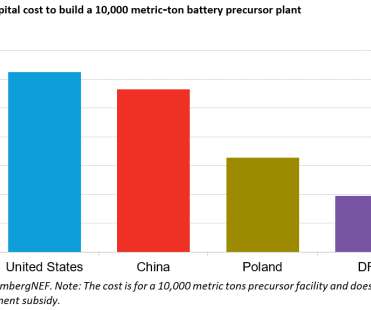BNEF: producing battery materials in the DRC could lower supply-chain emissions and add value to the country’s cobalt
Green Car Congress
NOVEMBER 29, 2021
The DRC’s cost competitiveness comes from its relatively cheap access to land and low engineering, procurement and construction, or EPC, cost compared to the US, Poland and China. This is three times cheaper than what a similar plant in the US would cost. European cell manufacturers currently rely heavily on China for battery precursors.












Let's personalize your content